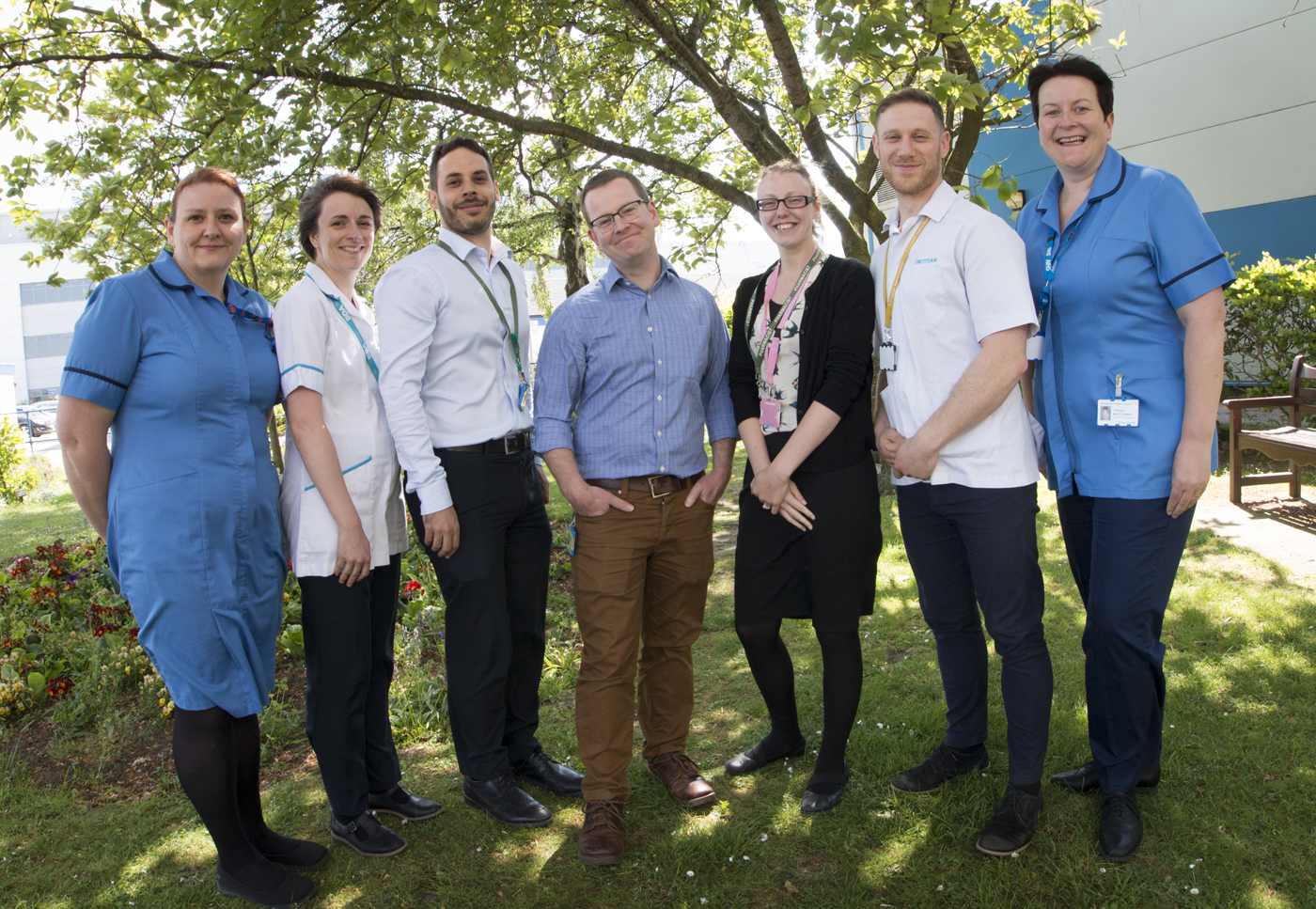A hospital service is celebrating six years of keeping people who require feeding intravenously out of hospital and in their own homes.
The Nutrition Team at Hull University Teaching Hospitals NHS Trust was launched in June 2012 to care for patients with intestinal failure who require parenteral nutrition (PN) to prevent malnutrition and or dehydration.
Patients receive appropriate nutrients and dietary minerals administered intravenously through an external “Tunnelled lines” or Peripherally Inserted Central Catheters known as PICC lines.
The service, which is currently looking after around 40 patients at home as well as patients at Hull Royal Infirmary and Castle Hill, has benefited scores of people who can now stay at home instead of spending months in a hospital bed.
Philippa MacElhinney, Clinical Nurse Specialist in PN, said: “We see patients who require PN as part of their short-term recovery right up to those who will require long term feeding for the rest of their lives.
“When the service was first launched, there was one patient who had been in hospital for nine months and another for a year because they were on PN and there was no dedicated service for them.
“It was the Nutrition Team’s main priority to ensure a service was set up.
“Now, we can give people a far better quality of life because they can maintain their independence by staying at home or holding down a job instead of remaining in hospital for months on end.”
Before the service was introduced, PN patients had to either stay in hospital to receive their treatment or come into hospital for up to four to six hours, three to four times a week, to ensure their nutritional or hydration needs were being met.
With the numbers of PN patients increasing, the Nutrition Team had to find alternative ways of discharging patients safely back home with appropriate levels of care and support.
The Nutrition Team ensures patients and their families are trained to look after their own PICC lines to self-administer their treatment and prevent infection, ensuring wards have capacity to care for sick people requiring inpatient care.
As well as showing patients and their relatives how to look after their central lines, the Nutrition Team has also worked with nursing homes in Hull and the East Riding to ensure staff know how to deliver safe care once a patient on PN has been discharged.
The trust also commissions four domiciliary care firms to provide care to patients within their own home if they are unable to look after their treatment themselves.
Before a patient is discharged, members of the Nutrition Team meet them and their families to explain how they will benefit from the home service. Staff arrange for the patient to be referred to one of the four home care companies and order the correct equipment.
The Clinical Nurse Specialists work with dietitians and pharmacists in the nutrition team to ensure the prescriptions for PN or intravenous fluids are in place and patients are followed up once they go home.
Philippa MacElhinney said: “Some people are concerned, worried how the ‘hospital treatment’ will be delivered in their own home but we ensure they know the process before they go home”.
“We get lots of calls for support from patients and their families in the days following their discharge but those calls reduce as people become more confident in their own treatment.
Once they are discharged, patients are monitored closely until they are more confident and the GPs are kept fully informed of the care plan in place for their patient.
When heat waves or cold snaps are predicted, the Nutrition Team contacts all home patients and the home care companies to ensure patients do not require additional stock or deliveries and offer offer advice over the phone and by email.
A home parenteral nutrition support group meets twice a year where patients and their families can share their views, contribute ideas on how the service could be improved and adapted and find support from each other.
Philippa MacElhinney said: “We are very proud of the service our team offers to patients and we believe we make a real difference to their lives.”

